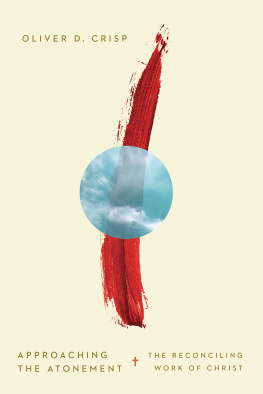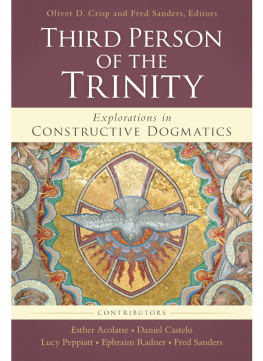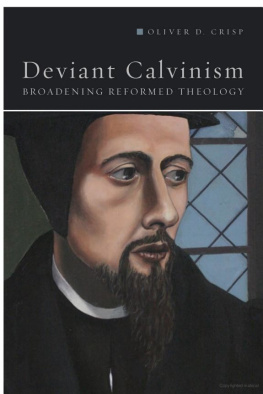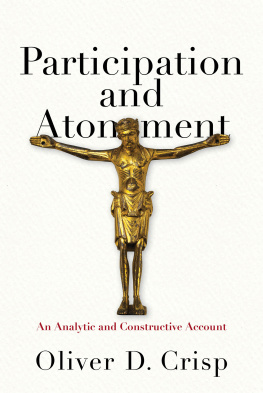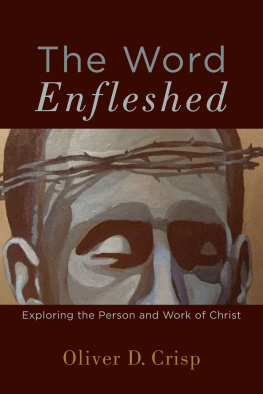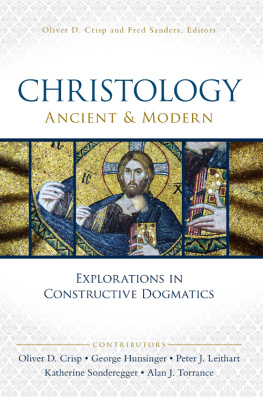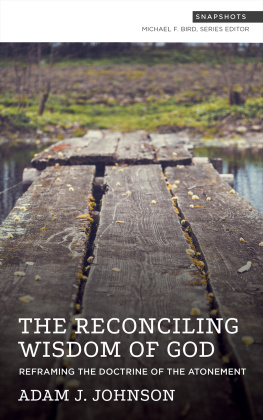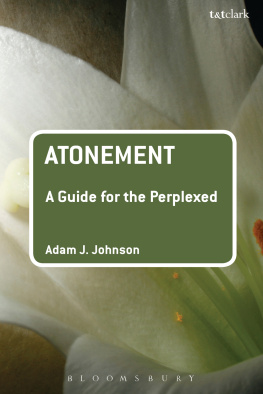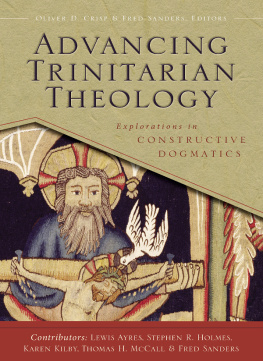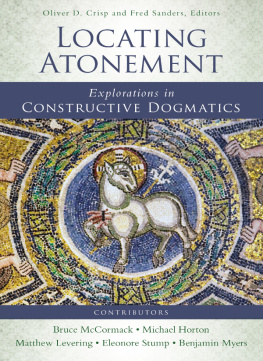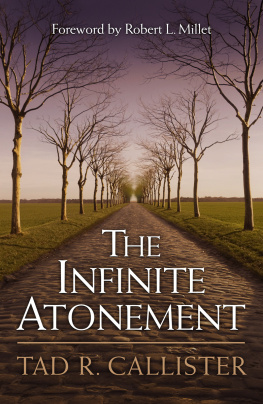Oliver D. Crisp - Approaching the Atonement: The Reconciling Work of Christ
Here you can read online Oliver D. Crisp - Approaching the Atonement: The Reconciling Work of Christ full text of the book (entire story) in english for free. Download pdf and epub, get meaning, cover and reviews about this ebook. year: 2020, publisher: InterVarsity Press / IVP Academic, genre: Religion. Description of the work, (preface) as well as reviews are available. Best literature library LitArk.com created for fans of good reading and offers a wide selection of genres:
Romance novel
Science fiction
Adventure
Detective
Science
History
Home and family
Prose
Art
Politics
Computer
Non-fiction
Religion
Business
Children
Humor
Choose a favorite category and find really read worthwhile books. Enjoy immersion in the world of imagination, feel the emotions of the characters or learn something new for yourself, make an fascinating discovery.
- Book:Approaching the Atonement: The Reconciling Work of Christ
- Author:
- Publisher:InterVarsity Press / IVP Academic
- Genre:
- Year:2020
- Rating:4 / 5
- Favourites:Add to favourites
- Your mark:
- 80
- 1
- 2
- 3
- 4
- 5
Approaching the Atonement: The Reconciling Work of Christ: summary, description and annotation
We offer to read an annotation, description, summary or preface (depends on what the author of the book "Approaching the Atonement: The Reconciling Work of Christ" wrote himself). If you haven't found the necessary information about the book — write in the comments, we will try to find it.
Approaching the Atonement: The Reconciling Work of Christ — read online for free the complete book (whole text) full work
Below is the text of the book, divided by pages. System saving the place of the last page read, allows you to conveniently read the book "Approaching the Atonement: The Reconciling Work of Christ" online for free, without having to search again every time where you left off. Put a bookmark, and you can go to the page where you finished reading at any time.
Font size:
Interval:
Bookmark:
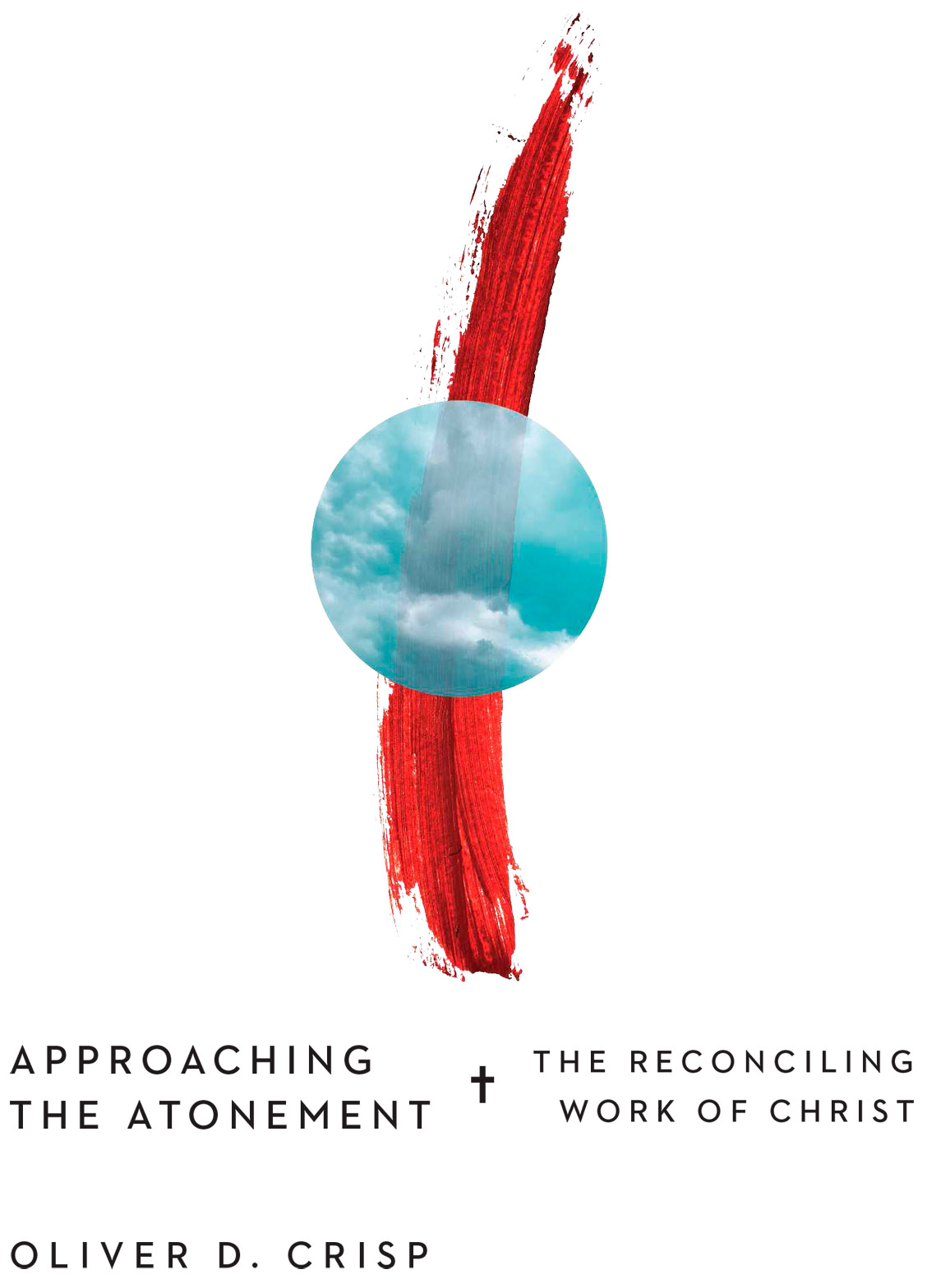
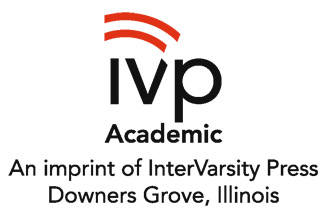
InterVarsity Press
P.O. Box 1400, Downers Grove, IL 60515-1426
ivpress.com
2020 by Oliver D. Crisp
All rights reserved. No part of this book may be reproduced in any form without written permission from InterVarsity Press.
InterVarsity Pressis the book-publishing division of InterVarsity Christian Fellowship/USA, a movement of students and faculty active on campus at hundreds of universities, colleges, and schools of nursing in the United States of America, and a member movement of the International Fellowship of Evangelical Students. For information about local and regional activities, visit intervarsity.org.
All Scripture quotations, unless otherwise indicated, are taken from The Holy Bible, New International Version, NIV. Copyright 1973, 1978, 1984, 2011 by Biblica, Inc. Used by permission of Zondervan. All rights reserved worldwide. www.zondervan.com. The NIV and New International Version are trademarks registered in the United States Patent and Trademark Office by Biblica, Inc.
Cover design: David Fassett
Interior design: Jeanna Wiggins
Images: red paint swashes: zoom-zoom / iStock / Getty Images Plus
cloud image: photograph by David Fassett
ISBN 978-0-8308-8854-2 (digital)
ISBN 978-0-8308-5197-3 (print)
This digital document has been produced by Nord Compo.
TO FRED SANDERS,
THEOLOGIAN OF THE HOLY TRINITY

I wish to record grateful thanks to Dr. David Congdon, who saw the potential in this project early on, and to Rev. Dr. David McNutt, my editor at IVP Academic, who shepherded it through the press (with great patience and forbearance). Thanks are also due to several of my classes on the doctrine of atonement at Fuller Theological Seminary whose members read through early drafts of much of this book in the summer term of 2016 and the winter and fall terms of 2018. Particular thanks are due to Christopher Date, Robert Dryer, Zach Maldonado, and David Mitchell, whose comments on particular chapters were invaluable. Conversations with Dr. Jordan Wessling were very helpful in thinking about the moral exemplar view of atonement. He and Rev. Dr. James Arcadi both gave me feedback on a draft of the , and I am grateful to them for their help. My doctoral student at the University of St. Andrews, Jared Michelson, read through a whole draft and offered comments, which were a great help. My wife, Claire, herself a writer, has been a great source of encouragement and criticism of my prose in just the right measures. This book is dedicated to my friend and collaborator in the Los Angeles Theology Conferences, Fred Sanders, who is the epitome of a generous, winsome theologian.
Atonement. It is a word we often use in Christian churches. It has even made its way into popular culturewitness British novelist Ian McEwans book Atonement, which was made into a feature film in 2007. We are often told from the pulpit, and in popular books on spirituality, that atonement means at-one-ment. In other words, it is about how God makes us one with himself, reconciling us by means of Christs death. On the face of it this seems like a good rough-and-ready definition of the doctrine. But a moments reflection will make us wonder whether it is entirely satisfactory. What is this at-one-ment? How are we made one with God by Christs death on the cross? What sort of union with God is envisaged here? The simple description of atonement as reconciliation with God doesnt really provide any explanation of these things.
Often Christians do not have very clear ideas about key doctrines of the faith. That is not surprising. Most people lack a clear understanding of many important things in life they take for granted, such as how gravity works, or the way smartphones wirelessly connect one person with another across great distances via satellite relays. The Trinity is perhaps the most notorious example of a misunderstood Christian doctrine, and many a Bible study leader has found herself tongue-tied in trying to give some account of it. Yet often Christians think they have a pretty good grip on what the atonement is about. It seems intuitive, somehow, largely because of the familiarity of the Gospel narratives. Most Christians have read the biblical accounts of the life, death, and resurrection of Christ. They have heard sermon after sermon on the atoning work of Christ. That it is by his death that fallen human beings are healed is a mantra that has been drummed into church goers over many years of formation, from Sunday School to Sunday worship.
Once, when he was asked to give a summary statement of the gospel, the great Swiss theologian Karl Barth retorted with the words of the well-known childrens hymn, Jesus loves me this I know, for the Bible tells me so. Somehow, we understand there to be a connection between these two things, even if we cant always articulate it. Gods love is expressed in bringing about our salvation via the death of Christ. What connects Gods love and our salvation in Christ is something like this claim: Jesus dies on the cross to save us from our sins. Or, as the writer of the pastoral epistles puts it, Christ Jesus came into the world to save sinners (1 Tim 1:15). The author of Colossians expands upon this theme when he writes, Once you were alienated from God and were enemies in your minds because of your evil behavior. But now he has reconciled you by Christs physical body through death to present you holy in his sight, without blemish and free from accusationif you continue in your faith, established and firm, and do not move from the hope held out in the gospel (Col 1:21-23).
Yet, how is it that the crucifixion of one person can somehow save other, fallen human beings? What is it about Christs death on the crossthe death of a criminal in the Roman worldthat makes it the means by which God is able to bring about human reconciliation as these New Testament epistles suggest?
Some Christians, particularly those from evangelical churches, have a ready response to this question. The meaning of the cross, they say, is that by Christs death on it we are reconciled to God. What is more, this act of reconciliation is made possible by the crucifixion because Christs death is a punishment for our sins. Christ stands in our place and takes upon himself the punishment due to us as sinners, so that God does not have to punish us. Christ has taken upon himself our debt, releasing us from it in his death. This, in a nutshell, is the doctrine of penal substitution. It is called penal substitution because the central idea is that someone stands in the place of another (that is, becomes a substitute) taking upon himself some punishment due to the other (that is, takes a penalty, the word penal having to do with punishment being meted out according to some code of law, in this case, Gods moral law).
This is one popular way in which many Christians respond to the question about the meaning of the cross, but it is not the only way Christians have thought about the atonement. Today, it is also a doctrine under fire, and many Christian thinkers, even those within evangelicalism, are moving away from this way of thinking because there appear to be serious problems with it as an account of how Christs crucifixion reconciles us to God.
Font size:
Interval:
Bookmark:
Similar books «Approaching the Atonement: The Reconciling Work of Christ»
Look at similar books to Approaching the Atonement: The Reconciling Work of Christ. We have selected literature similar in name and meaning in the hope of providing readers with more options to find new, interesting, not yet read works.
Discussion, reviews of the book Approaching the Atonement: The Reconciling Work of Christ and just readers' own opinions. Leave your comments, write what you think about the work, its meaning or the main characters. Specify what exactly you liked and what you didn't like, and why you think so.

